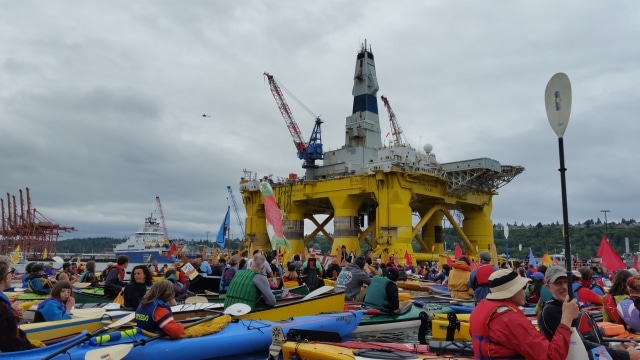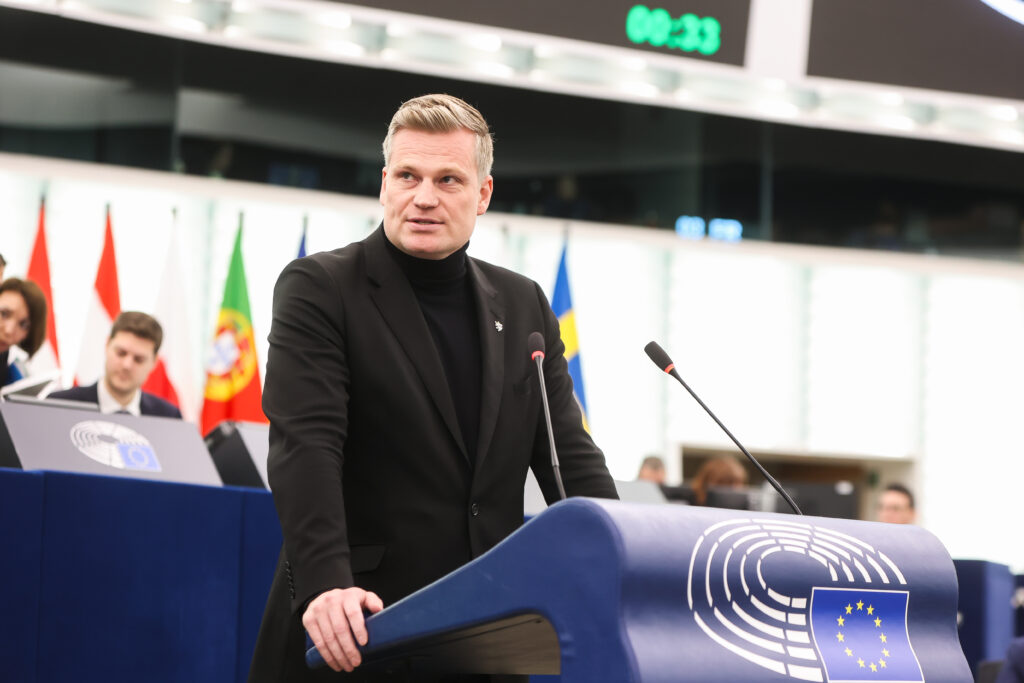Shell’s chief executive Ben van Beurden was grilled at the oil company’s annual general meeting (AGM) today on its controversial plans to drill in the Arctic.
Pressure came from environmental activists, indigenous leaders and key institutional investors, including APG Asset Management and Dutch asset management firm Robeco, who all questioned the high risk, high cost of Arctic drilling.
Climate change remained a prominent theme throughout the five-hour meeting, culminating with shareholders voting nearly 99 percent in favour of a resolution that will force Shell to consider the possibility of a 2°C world in its forecasting.
Arctic Oil Incompatible
According to a study by University College London, a profitable Arctic oil operation is incompatible with a 2°C world. However, it was recently revealed that Shell has been using a 4°C to 6°C scenario to guide future business operations; this is at least twice the level of warming considered safe for the planet, as internationally agreed.
At Tuesday’s meeting held in The Hague, van Beurden dismissed the link between climate change and Arctic oil exploration as “illogical”.
“Arctic oil is logical, but we won’t convince everyone,” van Beurden said. “Arctic operations will always be unpalatable to some.”
You have to see these pictures of #Seattle’s kayaking #climate protesters: http://t.co/AGsd0pEPUe via @grist #ShellNo pic.twitter.com/4qEPxOGgoI
— DeSmogBlog (@DeSmogBlog) May 18, 2015
Shell’s AGM follows last week’s protests in Seattle where hundreds of ‘kayaktivists’ paddled out to meet Shell’s Polar Pioneer drilling rig after it made its way through Puget Sound to the Port of Seattle. From here, the rig will be deployed to its drilling grounds in the Chukchi Sea in Alaska this summer.
Ancestral Waters
Travelling from Arctic Village, Alaska, to attend Shell’s AGM, Faith Gemmill-Fredson – founder and executive director of the grassroots indigenous network REDOIL – told Shell board members: “The moral and financial burden of the irresponsible decision to drill in the Arctic is too risky to consider.”
“The traditional ecological knowledge states that Arctic drilling is not safe,” she added, “it will devastate lives and the climate.”
According to the US Department of the Interior, there is a 75 percent chance that a major oil spill will occur in the Arctic.
On this point, Mae Hank, Inupiat from Point Hope, Alaska, said: “We cannot move from the land when that spill hits the Arctic. The Chukchi is ancestral waters and we want it to stay so.”
Spill Prevention
Shareholder activists also criticised Shell’s claim that its equipment testing is “fully representative” of Arctic conditions, despite not having tested its equipment in the Arctic.
When pressed on the company’s spill-response plans, van Beurden admitted he was not familiar with the company’s spill prevention and response statistics.
CEO referenced containment as reason why Shell could clean up more but oil spill response plan is based on mechanical clean-up. #ShellAGM
— Louise Rouse (@rouselouise) May 19, 2015
Appears that Shell mgmt doesn’t u/stand its own oil spill response plan but it’s confident it can deal with a spill! #shellagm
— Louise Rouse (@rouselouise) May 19, 2015
Van Beurden emphasised that “huge opportunities come with huge obligations,” arguing that he is confident that Shell can deal with an Arctic spill.
Stranded Assets
Many of Shell’s ventures, including the Arctic and Canada’s tar sands, have courted controversy for being among the most exposed to the risk of becoming “stranded” by climate action. In order to meet a 2°C target, many of these assets would have to remain in the ground analysts have warned.
However, while van Beurden admitted this argument “sounds quite convincing”, he concluded that it was a “dangerous theory” which “doesn’t acknowledge reality.”
He said: “That particular theory ignores the reality of our industry… It risks distracting from the real issues.”
When asked about its membership to lobby groups that oppose climate change policies and carbon pricing, such as the American Legislative Exchange Council (ALEC), Shell said it had no plans to distance itself from them.
Photo: Backbone Campaign via Flickr
Subscribe to our newsletter
Stay up to date with DeSmog news and alerts







